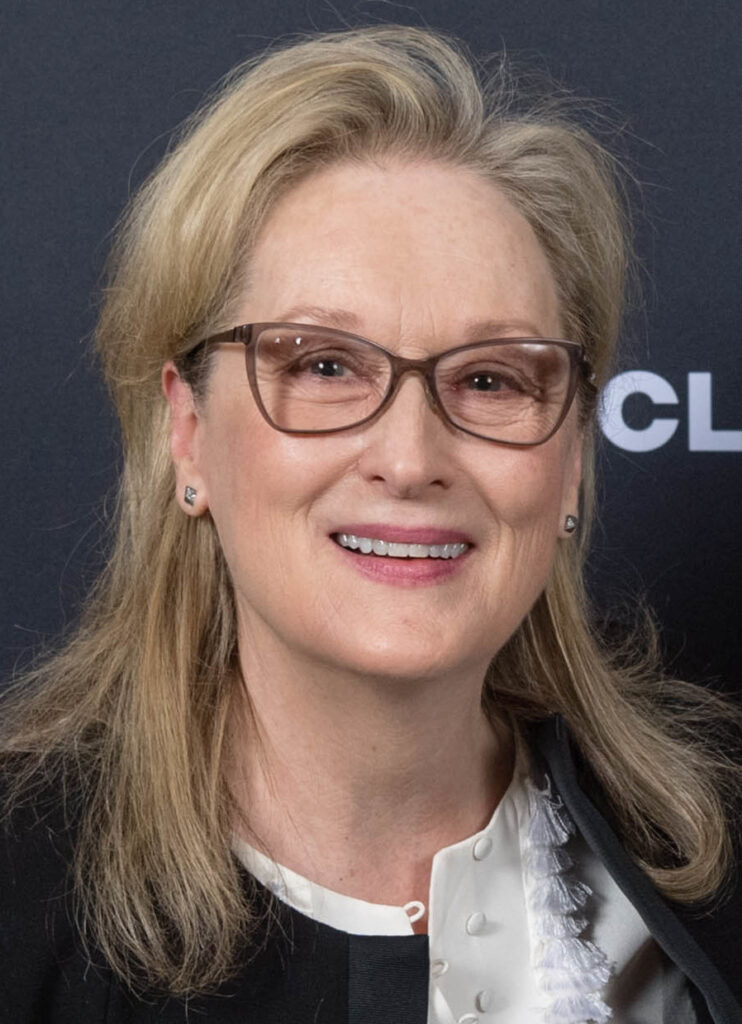
In the dazzling, often illusory world of Hollywood, where legends are forged and careers are made or broken with astonishing speed, Meryl Streep stands as an almost mythical figure. Her name is synonymous with unparalleled talent, enduring grace, and a career trajectory that seems, from the outside, to have been nothing short of flawless. Yet, beneath the veneer of perpetual success lies a truth far more complex and human: even the most celebrated artists, the ones we deem untouchable, navigate treacherous waters, encountering moments that could easily derail their entire journey.
This article takes us beyond the red carpet glamour, offering a rare glimpse into the profound precarity of an acting career, even for someone destined for greatness like Streep. We will explore not just the pivotal early role that nearly prompted her to walk away from it all, but also other deeply personal struggles she faced. Furthermore, we will cast a wider net, examining how other esteemed performers, at various stages of their careers, found themselves teetering on the brink, their professional lives threatened by a single, ill-fated project or a crucial, almost-missed decision. It’s a compelling look at the unpredictable forces that shape a star’s destiny.
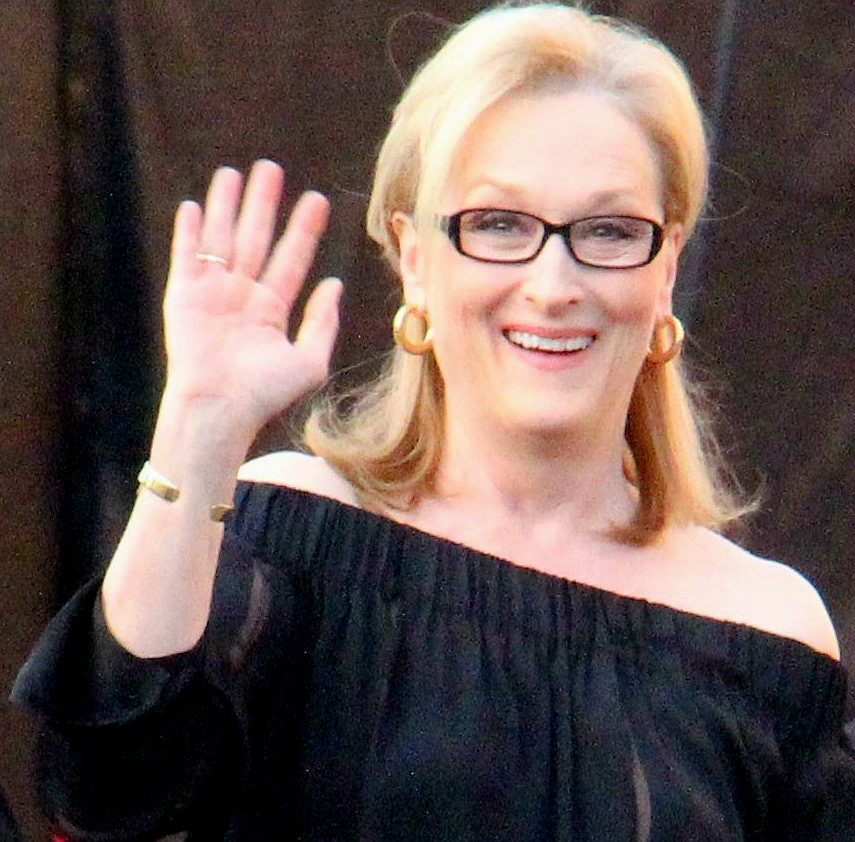
1. **Meryl Streep’s Disillusionment and the *Julia* Experience: A Near-Exit from Hollywood**Meryl Streep’s journey to becoming an acting icon was not without its early doubts and near-catastrophes. Before she captivated audiences worldwide, Streep dedicated herself to her craft, honing her skills all throughout her childhood and eventually earning a place at the prestigious Yale School of Drama. Her talent was evident, her commitment profound, yet even this early success was shadowed by a creeping disillusionment with her chosen path.
At a critical juncture, Streep found herself questioning the very essence of acting. She “was very influenced by environmental concerns and thought being an actor, at that time, felt like an indulgence or a vanity project that I was going into debt to be.” This introspection led her to wonder if she should pursue something more tangible, “something more meaningful and something more measurable,” where her contribution would be “something you could see instead of what I was aiming for, which was a life in the theater.” This deep-seated questioning revealed a foundational conflict within the aspiring star.
Her performances at Yale, however, had already begun to catch the attention of industry insiders, leading to her debut film role in the 1977 feature *Julia*. Cast in a small supporting part alongside the formidable veteran Jane Fonda, this opportunity should have been a triumphant first step into the world of cinema. Instead, it became a moment of profound horror and near-despair for Streep, almost pushing her to abandon film entirely.
Recalling the experience, Streep revealed, “When I saw myself on screen for the first time, I was horrified. I had a bad wig, and they took the words from a scene I shot with Jane and put them in my mouth in a different scene.” This disorienting and creatively compromised debut left her utterly dismayed. Her reaction was visceral and immediate: “I thought I’d made a terrible mistake, no more movies. I hate this business.” It was a definitive, almost career-ending declaration that, thankfully for cinema, she did not ultimately uphold.
This early brush with disillusionment and the technical indignities of filmmaking underscored the fragile start to what would become an illustrious career. That Meryl Streep, the undisputed titan of acting, almost quit before her career truly began, serves as a powerful reminder of the unforeseen challenges and personal battles even the most brilliant artists must overcome to find their enduring place in the spotlight.
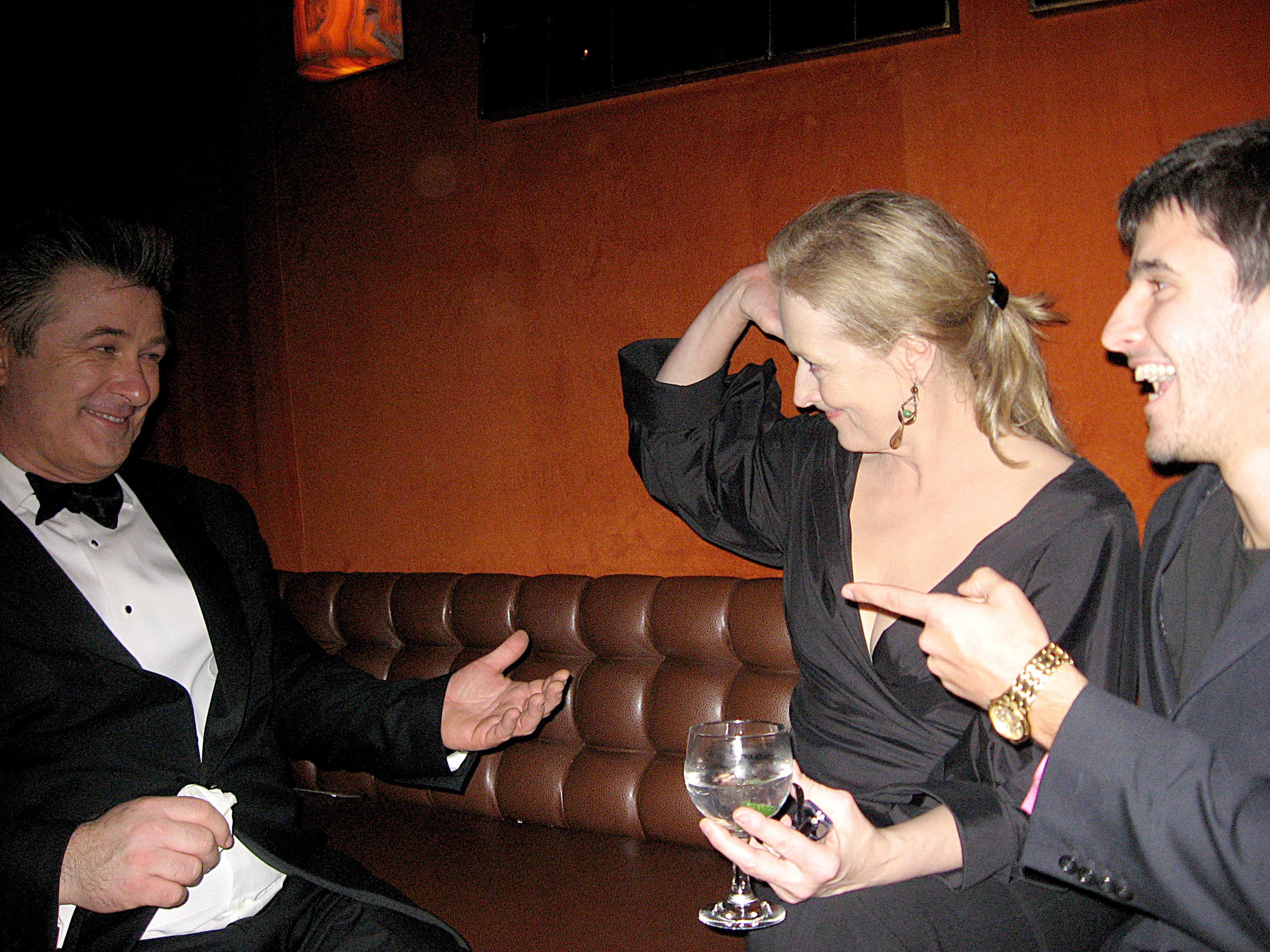
2. **The “Witch Roles” Threshold: Hollywood’s Post-40 Conundrum**The perception of longevity in Hollywood has always been a nuanced and often gendered battle. For Meryl Streep, even after establishing herself as a formidable talent, the looming milestone of her 40th birthday presented a significant psychological and professional hurdle. She openly confessed, “I remember as I was hovering around [age] 40, I thought each movie would be my last, really.” This internal fear was not without external validation, as she observed, “And all the evidence of other 40-year-old women at that time — this is 27 years ago — would leave you to believe it was over.”
Indeed, while Streep continued to secure roles even after turning 40, the nature of these opportunities revealed a stark reality about the industry’s perception of women in that age bracket. The roles being offered were not the kind that matched her immense talent or ambition. She vividly recounted a particular period: “I remember when I turned 40, I was offered, within one year, three different witch roles. To play three different witches in three different contexts.” It was a disheartening trend that signaled a troubling lack of imagination from casting directors and studios.
This pigeonholing felt like a collective message from the industry, a subtle but undeniable hint that her most versatile and challenging work might be behind her. As Streep herself interpreted it, “It was almost like the world was saying or the studios were saying, ‘We don’t know what to do with you.’” Such a sentiment, directed at an actor of her caliber, speaks volumes about the systemic biases that have historically limited opportunities for women past a certain age in Hollywood, almost pushing them towards a premature career twilight.
While Streep acknowledged that this landscape has gradually shifted for her in later stages of her career, remarking, “That really has changed, not completely, not for everybody, but for me it has changed,” the initial struggle highlights a significant barrier she had to navigate. Her ability to transcend these limitations and forge new paths for older actresses is part of her legacy, but it stemmed from a period where her career could have easily been sidelined into a series of predictable, typecast performances, proving that even legends face the threat of being misunderstood and undervalued by the system.
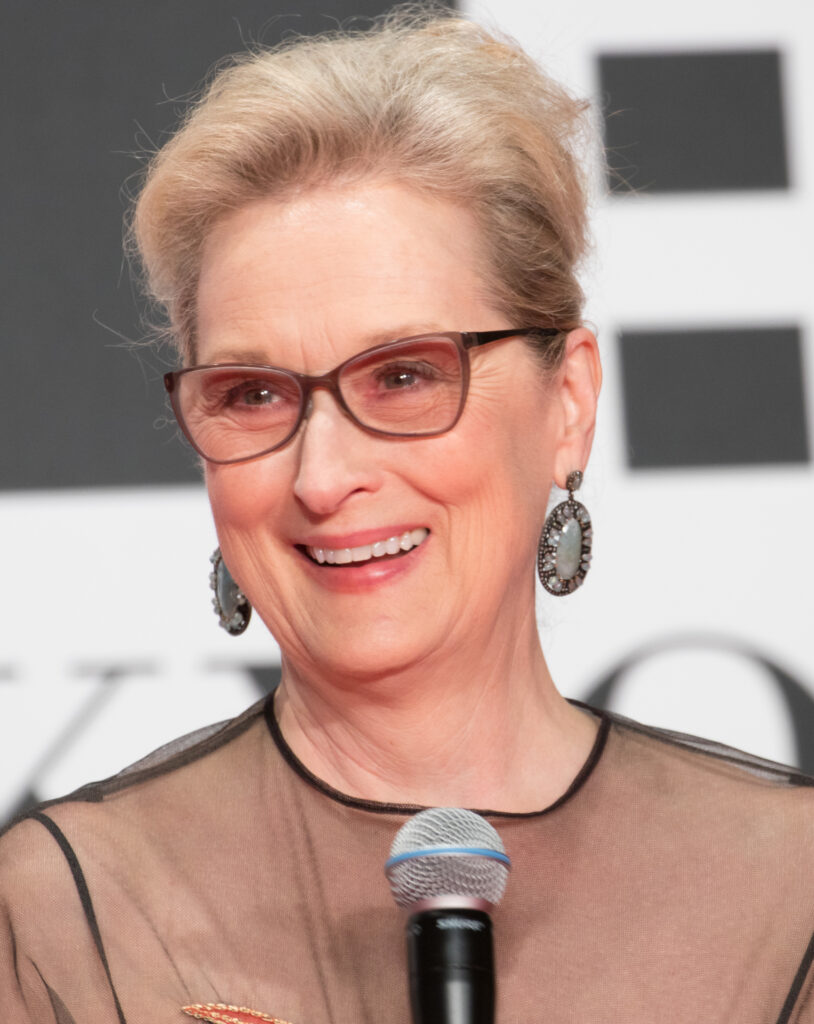
3. **The *Devil Wears Prada* Pay Standoff: Fighting for Value in a Pivotal Role**Few roles in Meryl Streep’s extensive filmography are as iconic and instantly recognizable as Miranda Priestly in *The Devil Wears Prada*. Her portrayal of the icy, impossibly demanding fashion editor is a masterclass in controlled ferocity and subtle power, earning her widespread critical acclaim and another Oscar nomination. Yet, this career-defining performance, one that resonated deeply with audiences and critics alike, almost never happened due to a significant pay discrepancy that Streep refused to overlook.
Streep, by this point, was a seasoned veteran, acutely aware of her market value and the impact her presence brought to any project. The initial financial offer for the role of Miranda Priestly, however, struck her as fundamentally disrespectful. She later explained, “The offer was to my mind slightly, if not insulting, not perhaps reflective of my actual value to the project.” It was a moment of reckoning, where a legendary actress had to draw a line in the sand, not just for herself, but for the principle of fair compensation.
At 55 years old, Streep found herself in a position where she had to assert her worth decisively. This wasn’t merely about personal gain, but about standing up for her contribution and setting a precedent. She recalled this as her “‘goodbye moment,’” a clear signal that she was prepared to walk away if her demands were not met. This resolute stance, born from years of experience and a newfound empowerment in negotiation, showed a different facet of career preservation: the willingness to advocate fiercely for one’s value in an industry often resistant to equitable pay.
Her courage paid off handsomely. Recognizing the irreplaceable talent and star power Streep would bring, the studio ultimately conceded, doubling their initial offer. “And then they doubled the offer,” Streep revealed, marking a significant victory not just for her, but for the ongoing conversation about fair compensation for women in Hollywood. This incident demonstrates that even when a perfect role presents itself, the business side of filmmaking can create a substantial hurdle, and a star’s career can be ‘almost ruined’ by an inability to agree on terms.
This episode underlines that career longevity and success are not solely dependent on performance; they also hinge on an artist’s ability to navigate the complex economic landscape of the entertainment industry. Streep’s firm stance ensured that her unparalleled talent was appropriately valued, securing her place in a film that would become a cultural touchstone and further solidify her legendary status.
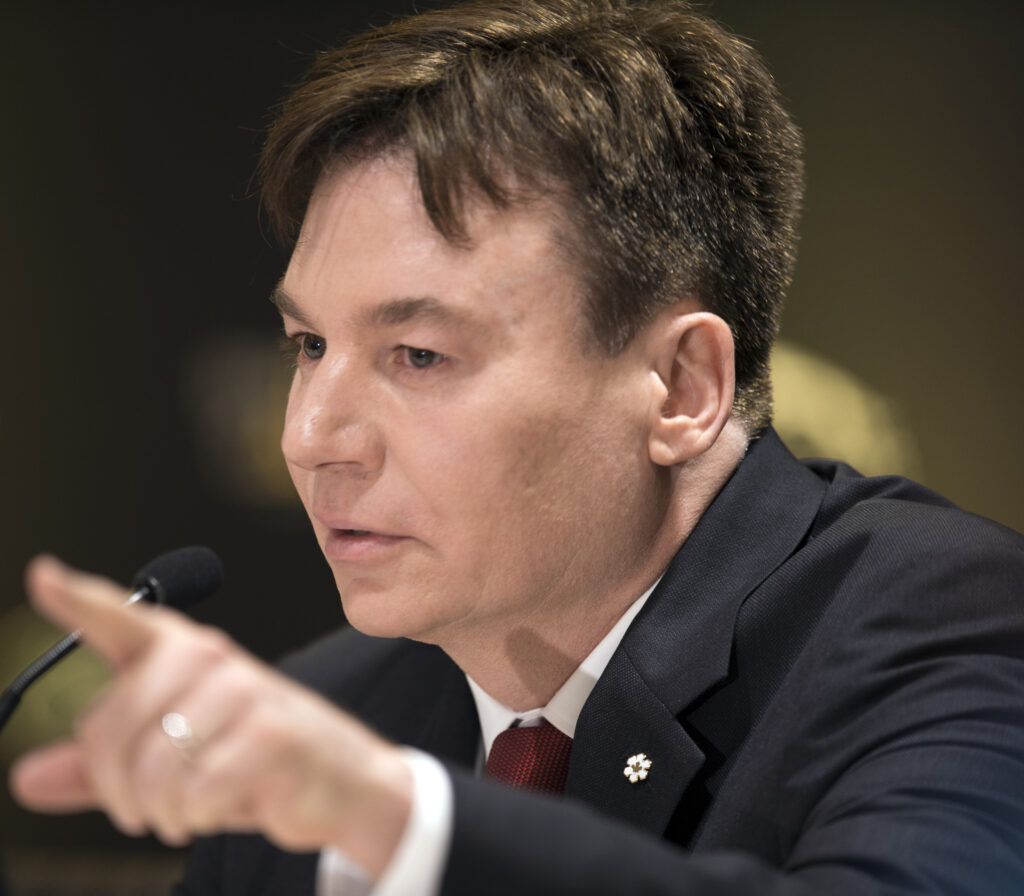
4. **Mike Myers and *The Love Guru*: The Comedy King’s Unraveling**In the early 2000s, Mike Myers stood as an undisputed titan of comedy, an actor whose projects consistently delivered both critical acclaim and box office gold. With the phenomenal successes of the *Shrek* movies, the enduring popularity of the *Austin Powers* series, and a string of other successful one-off ventures, Myers seemed utterly invincible. He had built a formidable empire of laughs, appearing to be in an unshakeable position at the zenith of his career.
However, even the most robust empires are vulnerable to unforeseen threats. Myers’s reign came crashing down in a spectacular and disheartening fashion with the release of the 2008 film *The Love Guru*. This movie, widely regarded as incredibly ill-judged from its very conception, featured Myers in the role of an Indian mystic, a portrayal that was not only poorly received at the time but also deeply offensive in hindsight. It was a creative misstep of epic proportions that proved to be devastatingly consequential.
The backlash against *The Love Guru* was immediate and severe, coming from multiple fronts. Hindu viewers expressed strong condemnation for Myers’s culturally insensitive portrayal, adding to a chorus of critics who simply panned the movie for being genuinely awful. The film’s narrative failures and its problematic comedic approach collectively eroded Myers’s standing in the industry. This dual assault on his credibility—both ethical and artistic—dealt a severe blow to his once-unassailable reputation.
The repercussions for Myers were profound and lasting. The significant damage to his professional credibility effectively led to an eight-year hiatus from live-action acting. A period where he had once been a constant, beloved presence on screen transformed into a prolonged absence, a stark testament to the fallout from such a major misfire. It was a dramatic fall from grace, demonstrating how even the most popular comedians can quickly lose their audience’s trust and industry favor.
*The Love Guru* remains a potent cautionary tale in Hollywood: even at the peak of one’s power and popularity, a single, misguided project can dismantle years of hard-earned success. For Mike Myers, it was the moment his comedic kingdom faced an unexpected and almost irreversible collapse, proving that no star, no matter how bright, is entirely immune to the risks of a fragile business.
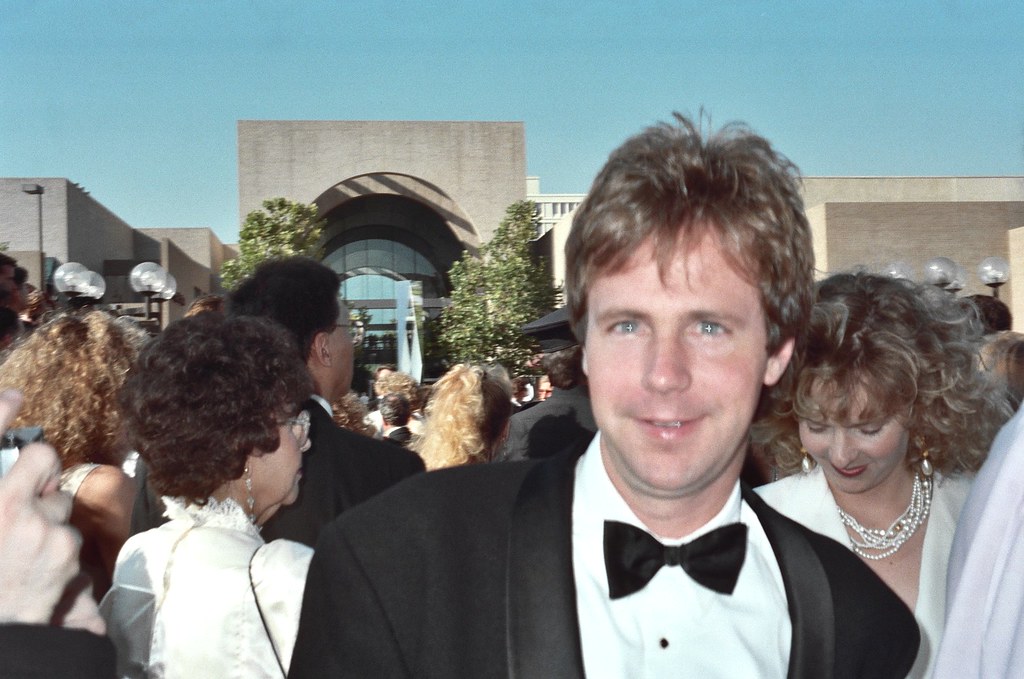
5. **Dana Carvey’s *Master of Disguise* Misstep: Reputational Fallout and Retreat**Alongside Mike Myers, his *Wayne’s World* co-star, Dana Carvey, also enjoyed a period of significant prominence in the 2000s. Building on the popularity of their cult classic film and his highly successful tenure on *Saturday Night Live*, Carvey had established himself as a versatile and beloved comedian. His career seemed to be on a steady upward trajectory, positioning him as a bankable star with a knack for character-driven humor.
In an attempt to capitalize on his comedic momentum, Carvey embarked on *The Master of Disguise*, a 2002 film centered around a man from a family of ‘disguisers.’ The premise, though quirky, held potential. However, the execution was met with an overwhelmingly negative reception, as critics and audiences alike greeted the film with unreserved scorn, describing its impact as akin to “a hand grenade in a submarine.” The movie became an immediate and undeniable cinematic disaster.
Critics were particularly merciless in their assessment, panning the film for its utterly unfunny gags and Carvey’s perceived overreliance on simplistic and “stupid facial expressions.” What was intended to be a showcase of his comedic talents instead devolved into a widely ridiculed performance, harming his professional standing. The film’s failure was not subtle; it was a loud and clear declaration that this particular creative endeavor had gone spectacularly wrong, fundamentally undermining Carvey’s comedic credibility.
The embarrassment stemming from *The Master of Disguise* had severe consequences for Carvey’s career and public persona. Not only did he step away from film projects for an extended period, but he also largely retreated “from public life entirely,” choosing to take time away from the spotlight to focus on his family. This retreat highlighted the profound personal toll that a major professional flop can inflict on even a seasoned performer, leading to a complete reevaluation of priorities.
Dana Carvey’s experience with *The Master of Disguise* serves as a poignant reminder of how quickly a stellar reputation can be tarnished by a single, poorly received project. It illustrates that even for celebrated comedians, the risk of misjudging a role or a project can lead to a dramatic and lasting shift in their career trajectory, pushing them out of the very public eye they once effortlessly commanded.
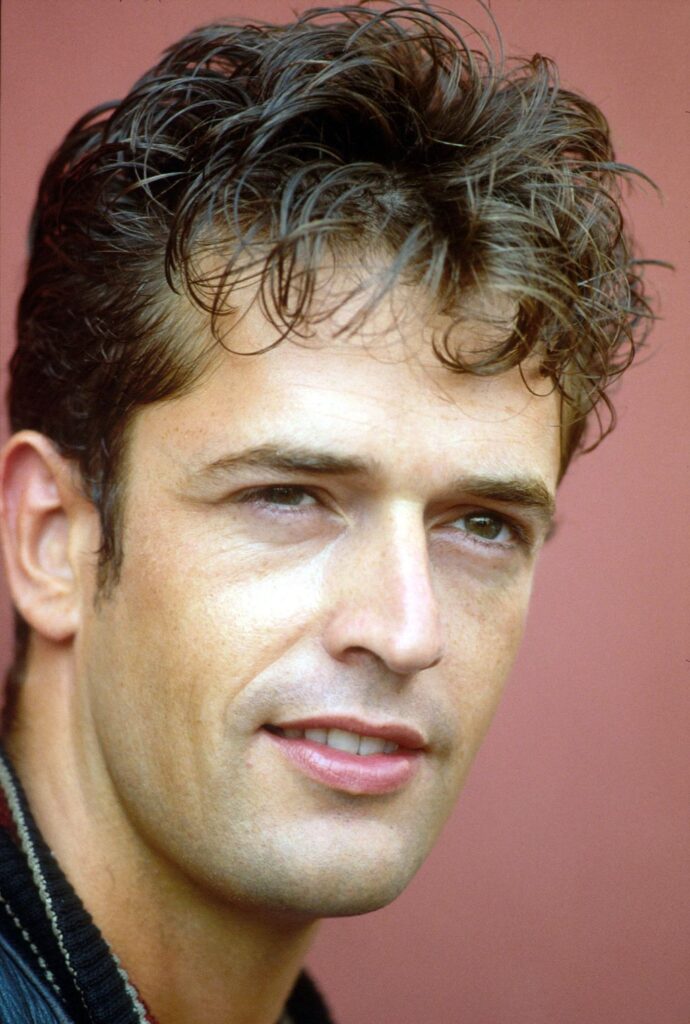
6. **Rupert Everett and *The Next Best Thing*: The Unlucky Formula and “Career Death”**For a considerable period, Rupert Everett occupied a unique and well-defined niche in Hollywood. Whether portraying a closeted gay figure in a less accepting era or embodying the quintessential gay best friend to a female lead in romantic comedies, Everett was a ubiquitous and often acclaimed presence. His charm, wit, and distinct persona made him a sought-after actor, carving out a recognizable and successful career path for himself, particularly in the late 1990s.
However, in 2000, Everett teamed up with the global pop icon Madonna for the film *The Next Best Thing*, a project that, for the first time, saw his previously winning formula spectacularly run out of luck. The movie, which explored the unconventional arrangement of a gay man and a straight woman having a child together, was plagued by critical indifference and audience apathy, ultimately proving to be a resounding box office and critical failure. It was a project that, despite its intriguing premise and star power, simply failed to connect.
The aftermath of *The Next Best Thing* was devastating for Everett’s career. He candidly described the period following its release as nothing less than “career death,” a stark and unsettling assessment from an actor who had previously enjoyed considerable success. This dramatic pronouncement underscored the profound impact the film’s failure had on his professional prospects, signifying a sudden and steep decline in his industry standing.
While Everett has indeed been able to secure work in the years since the film’s release, he has openly acknowledged that he has “never quite reached those same heights again.” The film’s negative reception cast a long shadow over his career, diminishing his leading man status and altering the trajectory of his subsequent roles. It’s a powerful illustration of how a single, poorly received film can permanently alter an actor’s professional landscape, even if they continue to work.
Rupert Everett’s experience with *The Next Best Thing* serves as a compelling testament to the fickle nature of Hollywood. It highlights the inherent risk in even well-established actors taking on projects that deviate from successful patterns or simply fail to resonate. His story offers a sobering reminder that even a beloved and skilled performer can suffer a profound “career death” from which it is incredibly challenging to fully recover, demonstrating the fragility of fame and the enduring impact of a cinematic misstep.
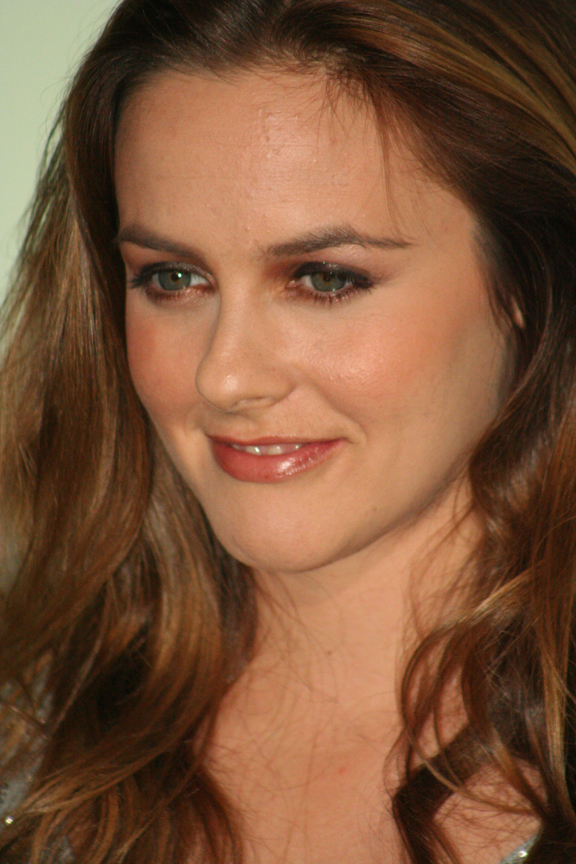
7. **Alicia Silverstone and *Batman & Robin*: The Unjust Fallout of a Flop**Alicia Silverstone, with her infectious charm and effervescent performance in *Clueless*, had cemented her status as a teen icon in the mid-1990s. Her casting as Barbara Gordon/Batgirl in Joel Schumacher’s highly anticipated *Batman & Robin* was perceived as a monumental leap, offering a major superheroine role when such characters were tragically scarce on screen. The anticipation for her entrance into such a high-profile franchise was palpable, suggesting a promising new chapter.
However, *Batman & Robin*, upon its 1997 release, was met with a brutal onslaught of critical derision and audience indifference. For Silverstone, the fallout was particularly devastating and deeply personal. She was not only savaged for her portrayal—a character many felt was poorly written—but also endured relentless and cruel body-shaming from the media. Her physique became an unwarranted subject of public scrutiny, a particularly egregious and ist attack that went far beyond professional critique.
The impact of this experience on Silverstone’s burgeoning career was profound and, for a time, seemed irreversible. The industry, ever fickle, appeared to pivot against her, and she candidly reflected that she was “never taken seriously again” in the wake of the film. This unjust dismissal stemmed from a project that was, by many accounts, fundamentally flawed in its conception and execution, rather than solely due to her performance. It highlighted the harsh reality that even immense talent can be overshadowed and derailed by a poorly conceived project and the venomous commentary of “acid-tongued commentators.”
Her story serves as a potent and disheartening cautionary tale, demonstrating how a singular, high-profile failure—especially when coupled with targeted personal attacks—can unjustly impede a performer’s potential and drastically alter their professional trajectory. While Silverstone has admirably navigated a path back to esteemed roles, the shadow cast by *Batman & Robin* remains a stark reminder of Hollywood’s often-unforgiving judgment and the unique pressures placed upon young actresses.

8. **Kevin Costner’s *The Postman*: The Self-Indulgent Downfall**Kevin Costner, by the dawn of the 1990s, was an undisputed cinematic titan. Having masterfully directed and starred in the magnificent 1990 epic *Dances with Wolves*, which swept the Academy Awards, he possessed an almost unparalleled artistic and commercial clout. His charm, leading man gravitas, and keen directorial eye had placed him in an enviable position, seemingly capable of turning any ambitious vision into critical and box office gold. He commanded immense respect and trust from both studios and audiences, a rare feat.
Yet, the very ambition that propelled him to such heights would, by the close of the decade, contribute to his dramatic downfall. In 1997, Costner once again donned both the director’s hat and the leading role for *The Postman*, a sprawling, three-hour post-apocalyptic saga. The film, which saw Costner as a drifter who inspires hope by donning a postal uniform, was immediately and widely derided as “massively self-indulgent.” Critics found its narrative ponderous, its themes heavy-handed, and its runtime excessive, betraying a perceived lack of editorial control.
The critical excoriation was matched by commercial disinterest, resulting in a significant box office failure. The film’s dismal performance had profound repercussions, effectively “taking the shine away from the *Waterworld* star,” whose previous mega-budget flop had already raised eyebrows. Costner’s once unassailable status began to crumble; he fell significantly out of favor with both the public and critics, who now viewed his directorial efforts with skepticism. This decline was sharp and sustained, marking a clear turning point in his illustrious career.
While Costner has continued to work diligently in the decades since, building a respectable portfolio of supporting roles and a successful television series, he has undeniably “not come close to regaining his popularity since” the profound impact of *The Postman*. It serves as a compelling and cautionary tale, illustrating how unchecked ambition and a poorly received project, particularly one perceived as self-serving, can inflict severe and lasting damage upon even the most celebrated Hollywood figures.

9. **Lori Petty’s *Tank Girl*: A Cult Classic’s Immediate Career Cost**Lori Petty, with her distinctive voice, edgy style, and charismatic screen presence, had been steadily building a compelling portfolio of roles throughout the early 1990s. From her memorable turns in *A League of Their Own* to *Free Willy*, she had carved out a unique niche for herself. Her talent for portraying strong, unconventional characters was widely acknowledged, and she seemed to be on the precipice of transforming her “burgeoning career” into mainstream stardom.
The year 1995 saw Petty take on the titular role in *Tank Girl*, a sci-fi action comedy based on the cult British comic strip. While the source material had a passionate following, its cinematic execution proved deeply polarizing. “Aptly, the movie tanked,” its commercial and critical failure becoming a significant and immediate blow to Petty’s professional standing. Despite the film’s eventual re-evaluation as a “cult favorite,” its initial reception was overwhelmingly negative, failing to connect with broader audiences or critics.
The irony was particularly cruel for Petty, as many critics, even in their scathing reviews, often singled out her performance for praise, acknowledging her undeniable energy and commitment. Yet, this individual commendation offered little solace. The overwhelming negativity surrounding the film as a whole overshadowed her contribution, creating significant professional hurdles. She “struggled to get work in the film space” following *Tank Girl*’s release, finding it challenging to secure the leading roles she had seemed destined for.
Consequently, Petty made a pivot, returning to her “old TV stomping grounds” to find consistent employment, a move that, while providing stability, also signified a halt in her cinematic ascent. *Tank Girl*’s journey from initial failure to later cult status underscores a harsh reality of Hollywood: immediate commercial and critical reception often dictates an actor’s opportunities, regardless of individual effort or eventual artistic reappraisal. The film undeniably “tore her career apart” in its initial aftermath.
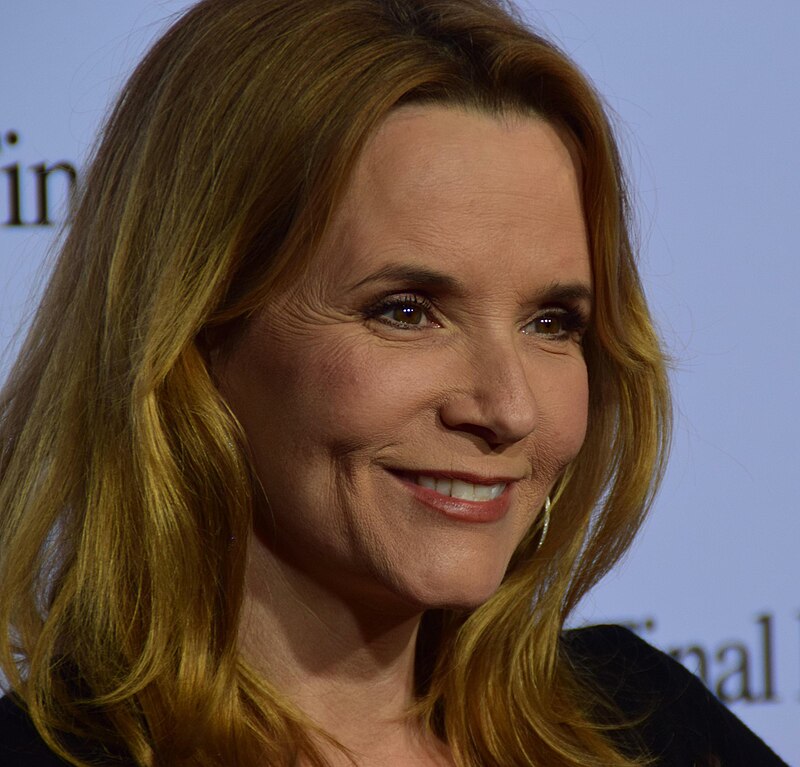
10. **Lea Thompson and *Howard the Duck*: From Blockbuster to Bomb**Lea Thompson’s career in the mid-1980s presented a stark and rapid swing between the absolute pinnacle of cinematic success and a profound professional nadir. In 1985, she soared to international fame as Lorraine Baines in *Back to the Future*, a film that became a cultural phenomenon and one of the highest-grossing movies of the decade. This iconic role cemented her status as a vibrant and talented leading lady, seemingly guaranteeing a long and prosperous career in Hollywood’s blockbuster landscape.
However, this dazzling success was almost immediately followed by a project that would deliver a catastrophic blow. Just one year later, Thompson starred as the love interest Beverly Switzler in *Howard the Duck*, an “ill-fated Marvel adaptation” produced by George Lucas. This film, renowned for its bewildering concept and critically lambasted execution, was a commercial and artistic trainwreck that became the subject of widespread ridicule. It was a colossal miscalculation that dramatically halted Thompson’s career momentum.
The actress herself eloquently captured the bewildering juxtaposition of her experiences, reflecting on her mid-1980s output: “[I]n the course of a year I was in the biggest hit and the biggest bomb so that probably destroyed my film career.” This candid assessment underscores the profound and immediate impact *Howard the Duck* had on her trajectory. Despite her undeniable talent and recent blockbuster success, the shadow of this notorious flop was long and pervasive, fundamentally altering the types of opportunities presented to her.
While Thompson did admirably return for the successful *Back to the Future* sequels, demonstrating her enduring appeal, the momentum she had gained as a leading film actress was irrevocably damaged. Her experience serves as a potent cautionary tale, illustrating how even a prominent role in a major franchise cannot insulate a performer from the career-altering consequences of a universally disliked picture. It highlights the deeply precarious balance between a single triumphant role and an equally devastating misstep in the unpredictable world of cinema.

11. **Greta Garbo’s *Two-Faced Woman*: The Final Curtain Call on a Legend**The name Greta Garbo is not merely that of an actress; it is a legend, a whispered echo of Hollywood’s Golden Age. Her image remains indelibly etched in cinematic memory, synonymous with unparalleled glamour, an almost mystical screen presence, and the very epitome of an enigmatic movie star. Throughout her illustrious career, Garbo cultivated an aura of untouchable allure and delivered performances of profound dramatic intensity, establishing herself as one of the most revered figures in film history. Her star shone with a unique, ethereal brilliance.
Yet, even for an icon of such magnitude, a single misstep could prove fatal. This esteemed career, spanning some of the most memorable films of her time, reached an abrupt, unsettling, and ultimately definitive end with her final film, 1941’s *Two-Faced Woman*. In a dramatic departure from her usual serious roles, Garbo ventured into screwball comedy, portraying a woman who feigns the identity of her own twin sister to rekindle her husband’s affections. It was a role intended, perhaps, to showcase a lighter side, or to adapt to changing audience tastes.
However, this comedic experiment was met with immediate and resounding disapproval, particularly from “the critical elite.” They found the film ill-suited to Garbo’s distinctive dramatic talents, deeming it lacking in wit and quality, and even criticizing her performance as a misapplication of her profound screen presence. The widespread negative reception, rather than a refreshing change, solidified *Two-Faced Woman* as an unfortunate and ungraceful swansong, sealing her fate in a way no one could have anticipated.
The impact of *Two-Faced Woman* on Garbo was devastatingly definitive. Disheartened by the overwhelming criticism and the film’s failure, it ultimately “put Garbo off acting for good.” At 36, at the height of her beauty, she chose to retreat entirely from the public eye. She never “graced the screen again,” opting instead for a reclusive life as an art collector until her passing decades later. Her story offers a powerful, albeit melancholic, testament to how a single, poorly received film can compel an unparalleled icon to abandon their craft entirely.
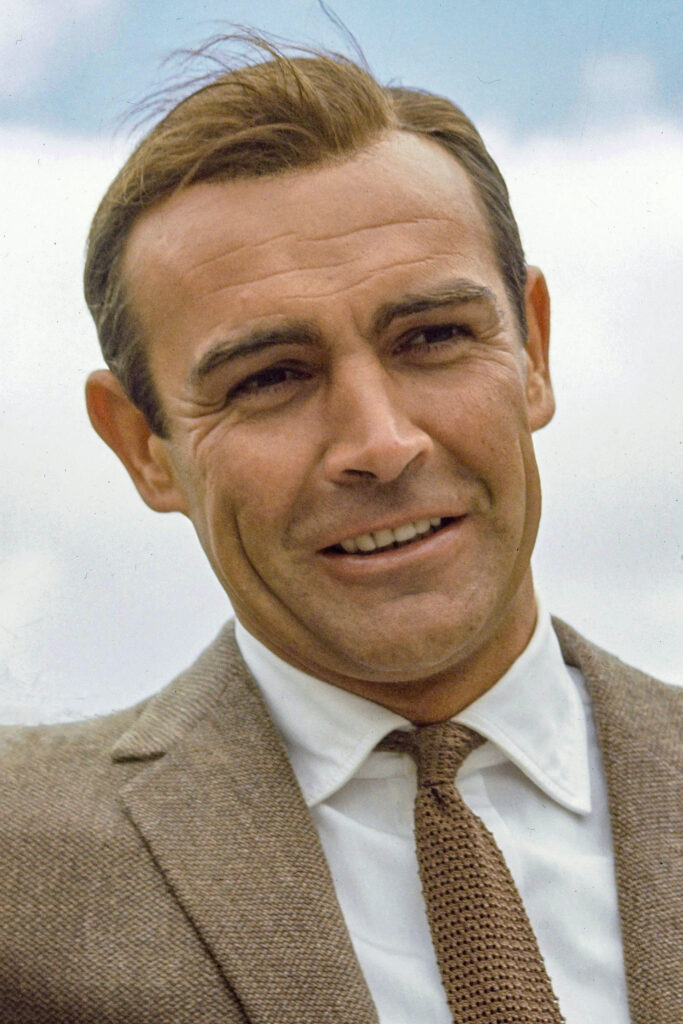
12. **Sean Connery and *The League of Extraordinary Gentlemen*: A Legendary Farewell Driven by Disillusionment**
Sean Connery, a name synonymous with masculine charm, gravitas, and an enduring screen presence, had already carved an indelible legacy. As the quintessential James Bond, he achieved global superstardom, and his subsequent career, adorned with an Academy Award, solidified his status as one of Hollywood’s most revered actors. By the early 2000s, with nothing left to prove, Connery was in a position where he “really didn’t need *The League of Extraordinary Gentlemen*.” His involvement in the 2003 film became an unfortunate and regrettable final chapter to his live-action career.
The production of *The League of Extraordinary Gentlemen* was reportedly plagued by creative conflicts and intense disagreements. Connery, known for his strong opinions, found himself constantly clashing with director Stephen Norrington. He desperately fought for “creative control of the final edit,” striving to shape the film. However, these protracted battles, fueled by fundamental differences in vision, contributed significantly to the “lacklustre end result” that proved to be a critical and commercial disappointment.
The stress, artistic compromise, and profound disappointment associated with the film severely affected Connery, leading to a deep disillusionment with the modern filmmaking process. This experience appears to have driven a wedge between the legendary actor and his craft. The immediate aftermath of *The League of Extraordinary Gentlemen* reportedly led to “staggeringly bad decisions,” most notably his decision to turn down the globally beloved roles of Gandalf in *The Lord of the Rings* and Albus Dumbledore in the *Harry Potter* franchise. These rejections were direct consequences of his experience.
Connery, seemingly weary of the creative battles and uninspired by the projects being offered, “would effectively retire after this infamous literary mish-mash,” never to return to live-action performing again. His departure marked a significant loss for cinema, illustrating how even an actor of his towering stature could be driven from the industry by a single, creatively unsatisfying and deeply frustrating experience. It stands as a powerful and melancholic coda to a magnificent career.
As we journey through these captivating yet often cautionary tales, from Meryl Streep’s early battles with disillusionment and industry perceptions to the dramatic and sometimes unjust falls of other beloved stars, a profound truth emerges about the entertainment industry: its inherent fragility. Whether an actor faces the specter of a career-ending flop, the insidious nature of typecasting, or the daunting challenge of demanding their true worth, the path to enduring success is rarely smooth. These stories underscore that even for the most talented and established performers, a single film can dramatically alter their trajectory, reminding us that in the dazzling, high-stakes world of Hollywood, the line between enduring legacy and professional oblivion is often remarkably thin, requiring not just talent, but also immense resilience, strategic foresight, and an unwavering belief in one’s own artistry.


